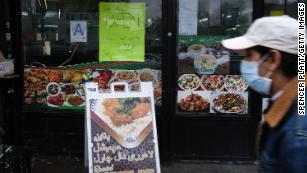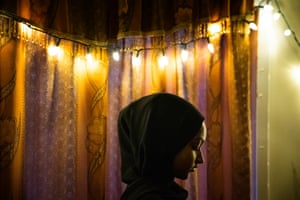 Imam Omar Suleiman is the founder and president of the Yaqeen Institute for Islamic Research and an Islamic studies professor at Southern Methodist University.
Imam Omar Suleiman is the founder and president of the Yaqeen Institute for Islamic Research and an Islamic studies professor at Southern Methodist University.
For Muslims, Ramadan is a time in which we fast from God’s blessings that are readily available to us and that we often take for granted.
Among the wisdoms of fasting is that if we voluntarily abstain from food and drink, we will be able to better empathize with those who are facing hardships due to poverty.
But it is not enough to merely experience hunger for the sake of your own spiritual discipline. One must also be activated toward fighting collective hunger. The Prophet Muhammad (peace be upon him) said, “He is not a believer who sleeps with his stomach filled while his neighbor goes to bed hungry.” If a person cannot fast due to a permanent medical condition, they are to feed a poor person for every day they miss. And before the community gathers at the end of the month to feast on the day of Eid, each able person is obligated to provide what is called Zakat al-Fitr, a small charitable donation that is taken a few days before the Eid to ensure that the poor are able to feast as well.
A year later, Hurricane Katrina hit our community in New Orleans. A 61-year-old convert to Islam who lost everything that year confessed to me in a shelter with tears in his eyes that he got so hungry one night that he dug through his suitcase only to find a container of years-old lard from his cupboard to break his fast with. He laughed and recalled the Somali woman. He never thought he would be in a situation like hers.
 (CNN) For Muslims around the world, the holy month of Ramadan looks a little different this year because of the
(CNN) For Muslims around the world, the holy month of Ramadan looks a little different this year because of the 

 As the world’s 1.8 billion Muslims begin observing the holy month of Ramadan, traditionally a time of dawn-to-dusk fasting, festivities and communal prayer, an unprecedented global pandemic is changing the celebration this year in equally unprecedented ways.
As the world’s 1.8 billion Muslims begin observing the holy month of Ramadan, traditionally a time of dawn-to-dusk fasting, festivities and communal prayer, an unprecedented global pandemic is changing the celebration this year in equally unprecedented ways.


 Posts on social media make the claim that the government of Minnesota is allowing mosques to remain open amidst the novel coronavirus outbreak, while Christian churches are closed. Examples of this post can be seen
Posts on social media make the claim that the government of Minnesota is allowing mosques to remain open amidst the novel coronavirus outbreak, while Christian churches are closed. Examples of this post can be seen  IF ANTI-SEMITISM is the world’s oldest hatred, perhaps Islamophobia is the world’s weirdest.
IF ANTI-SEMITISM is the world’s oldest hatred, perhaps Islamophobia is the world’s weirdest.

 The coronavirus pandemic is affecting all three of the world’s major religions.
The coronavirus pandemic is affecting all three of the world’s major religions.